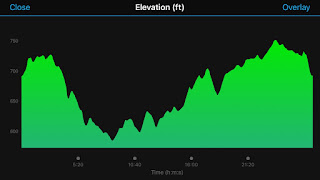The Washington Post reports on the push for armed intervention of some kind in Venezuela.
Vice President Pence will travel to Colombia on Monday to meet with regional leaders — including the head of the Venezuelan opposition, Juan Guaidó — and discuss potential options for a more muscular front against Maduro. While the White House originally cast Saturday’s aid push on the Venezuelan border as a potential tipping point for ousting Maduro, administration officials said Sunday that the weekend’s violence had frustrated those plans, making new action necessary.
Pence plans to announce “clear actions” to respond to the weekend’s clashes, though he is not likely to address whether the U.S. military would get involved, a senior administration official, who spoke on the condition of anonymity to discuss the plans, told reporters Sunday.
Marco Rubio is trying to stir everything up with
bloody tweets of Gaddafi.
He left up the Manuel Noriega one, just adding to the inaccurate parallel to Panama. All of the U.S. war mongering only makes it harder for the Venezuelan military to defect.
So what now?
Adam Isacson runs down details about what an invasion might look like. It's lengthy and not easy to just summarize, so I strongly suggest you read it yourself. Frank Mora, who as a former DoD official knows his stuff,
had a few comments about it and puts the chance of U.S. intervention at less than 10%.
Noel Maurer separately argues why the U.S. won't invade Venezuela (though with plenty of caveats, specifically not ruling out aerial attacks). The bottom line is that armed intervention will inflict damage and death, and possibly be very drawn out.
My worry, as I've said before, is the Trump Factor. He has been reticent to use force, but is also highly sensitive to being viewed as weak. And, of course, he has people around him who want to invade. Juan Guaidó also wants it, or at least
something more forceful. At least Trump is currently distracted by North Korea and the border obsession, but Guaidó will want immediate attention to avoid losing all his political momentum, just as every past opposition effort did.
The only alternative viable option is negotiation that includes an interim president and presidential elections, along with freeing political prisoners and opening up media, among other things. At this point, Maduro has no incentive to accept that, so would have to be forced into it internally. We have not seen evidence of that yet from the outside.
If there is no invasion and no dialogue, then we stay in stalemate, essentially waiting for the Venezuelan economy to fall apart completely, perhaps by more multilaterally imposed sanctions. This entails deep suffering for Venezuelans, who we are purportedly trying to help. Then we're back to my Zimbabwe comparison. Suffering alone does not prompt regime change.
Read more...





